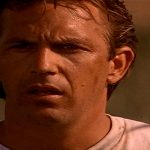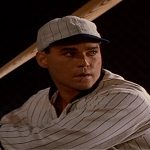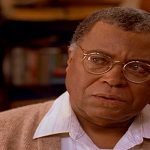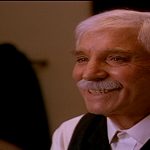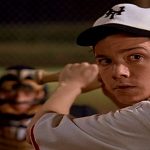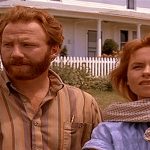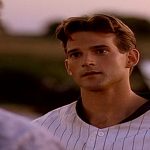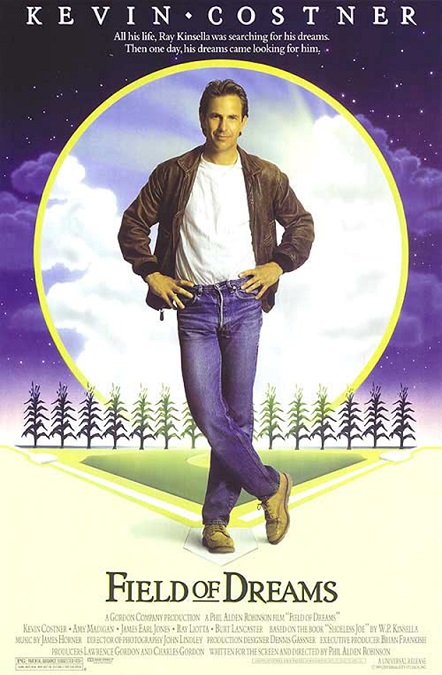
Field of Dreams – 1989
This was a strange movie. On the one hand, I got it. It was a fantasy set in modern times in which a bunch of benign ghosts help a man to reconcile his unresolved issues with his dead father. But on the other hand, I found it personally dull because I have never been a baseball fan. The biggest problem I had with the film stems from this. The film takes the stance that there is nothing more purely wholesome and American than the game of baseball. Therefore, it is a given absolute that everybody loves the sport. If you are a true red-blooded American, then of course, you love baseball.
Wrong. I have nothing against the game, and I fully admit that it has been a huge staple of American culture. But that culture has many staples that can be enjoyed, and I have never been remotely interested in baseball. I do not have fond memories of playing baseball as a child, and I certainly don’t feel like I ever missed out on anything because I didn’t play catch with my father.
But the movie wasn’t about me. It was about someone who did embody those interests and issues. Kevin Costner played Ray Kinsella, a farmer who had once rebelled against the wishes of his father, bad-mouthed his father’s baseball hero, and left home, never to talk to him again. Now, as he is working in his corn field, Ray hears a disembodied voice utter the famous phrase, “If you build it, he will come.” Then he has a vision of a baseball field in the middle of his field of crops. He tells his wife Annie, played by Amy Madigan, who supports his crazy idea. Ray uses his family’s life savings to build the sports field, complete with electric floodlights for night games, but he brings himself to the brink of financial ruin. Still, Annie continues to support him. Ray cannot pay his bills and the bank threatens to foreclose on his mortgage, at which point Annie begins to doubt her husband’s visions.
But then a lone ball player shows up on the field. Ray recognizes him as Shoeless Joe Jackson, wonderfully played by Ray Liotta. Now here is what I found interesting about the plot. When Ray goes out to meet Joe, it is revealed that Joe is aware that he is a ghost. Apparently, when Joe had been alive, he and 8 other players had been banned from playing baseball because of the 1919 Black Sox Scandal. But Jackson had been wronged because he had been innocent. Eventually, all 8 of the players begin having practice games on Ray’s field. Anyway, the disembodied voice returns, leading Ray on a journey across the country to find two men, one of them living, and the other dead. James Earl Jones plays Terrance Mann, an activist author and poet who, after attempting to rebuff Ray, begins to hear the voice. Together, the two find the ghost of another baseball player with unresolved issues, Archibald “Moonlight” Graham, played by Burt Lancaster in his final film performance, though his younger ghost self was played by Frank Whaley.
To make a long story short, the fantasy continues until Ray finally meets the ghost of the one ball-player he really needed to meet. After Terrance is invited to leave his earthly existence to join the rest of the ghosts in heaven, Shoeless Joe points out a lone ball player removing his catcher’s gear. It, of course, turns out to be Ray’s own father, played by Dwier Brown, but as a young man, as he had been before Ray had been born. Ray calls him Dad, establishing that they are both aware of who the other person is, and they play catch. This somehow forms a bond and resolves all Ray’s Daddy issues. Oh, and for some completely unexplained reason, hundreds of cars arrive, ready to pay money to watch baseball on his field, thus providing the money for Ray to pay his bills and keep the farm.
I think that what bothered me about the film is that fantasy, and I’ll also say science fiction, generally only works if ground rules are established and followed. If they are not, then the viewer is only left with unanswered questions. For example, the film never explained where the voice came from. It never explained why only certain people were able to see the ball players while others were not. I have to ask why Ray’s daughter Karin, played by Gaby Hoffman, and Terrance inexplicably became prophets who were able to convince Ray not to sell his farm to Annie’s brother, Mark, played by Timothy Busfield. And nobody seemed the least bit bothered by Karin’s near death experience. Magical things just seemed to happen to suit the story without much rhyme or reason. It is almost like a child making up a story, saying, “This happened, and this happened, and this happened.” But why did they happen? Without some kind of an answer, the story comes across as pretty weak, and dare I say, childish.
And I have to make mention of the movie’s final shot, the one showing the hundreds of cars lined up to watch baseball. They needed to rethink this one. Shoeless Joe and the ghost baseball players had left, saying that they would be back the next day. The only two people left on the field are Ray and the ghost of his father playing catch. Suddenly, all those hundreds of people are shown arriving in the middle of the night. It would have made more sense for them to arrive the next day when the players had returned.
